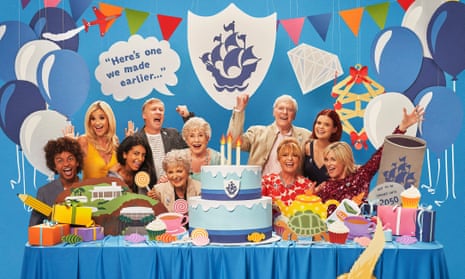The BBC’s chairman will warn that replacing the licence fee with a Netflix-style subscription service would result in big cuts to its children’s output that would potentially spell the end of dedicated channels such as CBeebies and CBBC in their present form.
Sir David Clementi will say that while the BBC welcomed debate on its future funding model, the public broadcaster would also be forced to make substantial cuts to its educational programmes and retreat from the regions if it had to put its content behind a paywall and compete on a commercial basis.
He will use a speech in Salford on Wednesday to warn that this model would result in drastically reduced output: “A subscription service would be unlikely to have much regional presence. It would be very unlikely to continue the level of properly curated programmes for children, or indeed the brilliant Bitesize education services that have helped so many teenagers. It would not have the same commitment to investing in home-grown ideas and talent, to the benefit of our whole creative sector.”
The executive said the public needed to be aware of where cuts would fall if the BBC were to become a voluntary subscription service, warning that it would become a very different offering: “It’s clear that a discussion of what sort of BBC we want must run in parallel with the debate about its funding, since the two are inextricably linked.”
Aside from the ideological and societal issues associated with turning the BBC into a paywalled voluntary subscription product, there is also the near-insurmountable technical challenge of limiting access to the corporation’s radio and television channels, which are available to the whole country on a free-to-air basis.
The government is already consulting on whether to decriminalise non-payment of the licence fee, while hinting that the licence fee model itself could be abolished when the BBC’s agreement with the government runs out at the end of 2027. Many other European countries have moved to a model where public broadcasters are funded either directly by the government or through a supplementary payroll tax on workers.
Leading Conservative politicians have proposed turning the BBC into a subscription service, highlighting the reach of Netflix, which has more than 10 million customers in the UK. The BBC and its defenders have fought back, pointing out the relatively narrow focus of Netflix’s output, its lack of news coverage, and its reliance on substantial borrowing to fund its output.
Clementi, who is in charge of appointing the next director general, is also expected to emphasise that the government would have to pick up the £250m annual cost of funding the BBC World Service if it became a subscription product.
He will also suggest that undermining the BBC would damage Britain abroad: “No other brand resonates around the world like the BBC. No other national asset has the potential to serve Britain so powerfully – uniting us as one nation at home, and representing global Britain abroad. The BBC is a great national asset; a diminished BBC is a weakened United Kingdom.”
